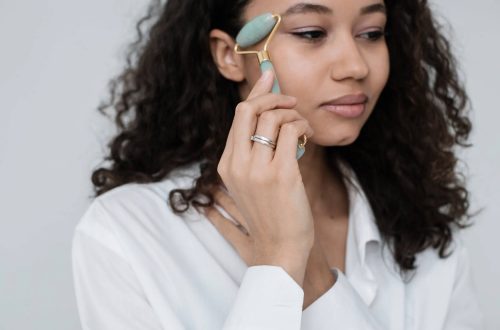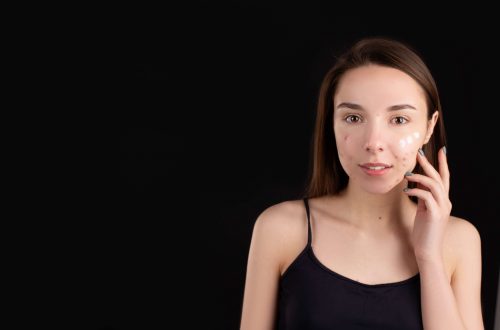How to Cure Acne Naturally
Acne is a common skin condition that affects millions of people around the world. It can be caused by a variety of factors, including hormonal imbalances, genetics, diet, and stress. While there are many over-the-counter and prescription treatments available, some people prefer to use natural remedies to cure their acne. In this blog post, we will discuss how to cure acne naturally, including some effective home remedies and lifestyle changes.

Home Remedies For Acne:
1. Tea Tree Oil: Tea tree oil is a natural anti-inflammatory and antibacterial agent that can help reduce inflammation and kill acne-causing bacteria. It can be applied topically to acne-prone areas using a cotton ball or q-tip.
2. Honey: Honey has natural antibacterial properties and can be used as a natural cleanser. It can also help soothe and moisturize the skin, making it a great natural remedy for acne.
3. Aloe Vera: Aloe vera is known for its soothing and healing properties. It can help reduce inflammation and redness associated with acne. Apply aloe vera gel to the affected areas and leave it on for at least 30 minutes before rinsing off.
4. Apple Cider Vinegar: Apple cider vinegar has natural antibacterial properties and can help balance the pH of the skin. Mix equal parts apple cider vinegar and water and apply to acne-prone areas using a cotton ball.
5. Green Tea: Green tea is a natural antioxidant and anti-inflammatory agent. It can be applied topically or consumed as a tea to help reduce inflammation and redness associated with acne.
7. Lemon Juice: Lemon juice has natural antibacterial properties and can help reduce oil production on the skin. It can be applied topically using a cotton ball or added to water and consumed as a drink.
Lifestyle Changes For Acne:
1. Diet: A healthy diet low in processed foods and high in fruits, vegetables, and lean proteins can help reduce acne. Avoid foods that are high in sugar and refined carbohydrates, as these can cause inflammation and acne.
2. Exercise: Exercise can help reduce stress, which can be a trigger for acne. It also helps increase blood flow and oxygen to the skin, which can improve skin health.
3. Hygiene: Keeping the skin clean and free of excess oil and dirt can help prevent acne. Wash your face twice a day with a gentle cleanser and avoid touching your face with your hands.
4. Stress Management: Stress can be a trigger for acne. Practice stress-reducing activities such as yoga, meditation, or deep breathing exercises.
5. Sleep: Getting enough sleep is important for overall health, including skin health. Aim for 7-8 hours of sleep per night to help reduce stress and inflammation associated with acne.
Acne can be a frustrating and embarrassing condition to deal with. While there are many treatments available, some people prefer to use natural remedies to cure their acne. Home remedies such as tea tree oil, honey, aloe vera, apple cider vinegar, green tea, turmeric, and lemon juice can be effective in reducing inflammation and killing acne-causing bacteria. Lifestyle changes such as a healthy diet, exercise, hygiene, stress management, sleep, and sun exposure can also help reduce acne. It is important to remember that everyone’s skin is different. What works for one person may not work for another, and some people may even have an adverse reaction to specific natural remedies or products.
It’s always a good idea to do a patch test before using any new natural remedy or product on your skin. This involves applying a small amount of the product to a small area of the skin and waiting 24 hours to see if any irritation or allergic reaction occurs. If you experience any redness, itching, or swelling, discontinue the use of the product immediately.
It’s also important to consult with a healthcare professional if you have severe or persistent acne. They can help you determine the underlying cause of your acne and recommend appropriate treatments, both natural and medical, based on your individual needs and skin type.
Subscribe to Newsletter





